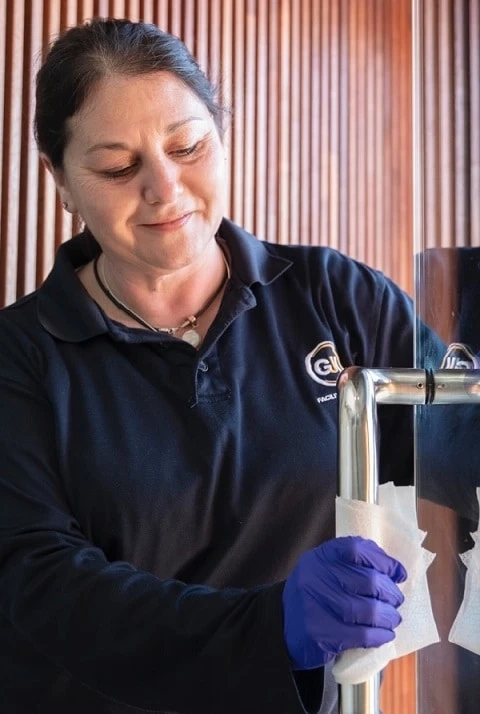Often confused as being one and the same thing, commercial cleaning and industrial cleaning are actually two very different branches of the cleaning services industry. Although the main differences lie in the type of facilities being cleaned, there are other differences which we will discuss in more detail in this article. From office cleaning to factories, the type of service provider you hire will depend largely upon how much expertise they have in cleaning facilities like yours.
What is Industrial Cleaning?
Industrial cleaning usually refers to highly specialised cleaning that is expected to follow strict health and safety guidelines and may require extensive training on the part of the service providers. Industrial cleaners may specialise in cleaning factories, generating plants, warehouses, power plants or cold storage and other types of industrial facilities. Depending upon the type of industrial facility being cleaned, the cleaners will require in-depth job training including safety knowledge, the use of special chemicals and machinery and how to safely dispose of toxic chemicals.
Industrial facilities are highly likely to use heavy machinery and toxic chemicals in the production of their products, which makes the job of an industrial cleaner potentially dangerous. They may need to be suited in protective clothing before they are allowed inside the space, which is often provided by the industrial cleaning company they work for. Here are some of the services you can expect to receive from an industrial cleaner:
- Asbestos Removal: A highly toxic substance that was extensively used in the construction of buildings in the previous century, the removal of asbestos requires the services of trained professionals.
- Mould Removal: An industrial cleaner will also take care of removing any mould growth and treat the area so that it doesn’t reappear.
- Lead Removal: Industrial cleaners may also use chemicals to break down lead coatings from machinery and equipment and dispose of them securely.
- Chemical Spill Cleanup: For any kind of chemical spill, it is imperative to get in touch with a professional, trained cleaner who has the right equipment for the job. They should also be able to decontaminate the space and the air after the spill has been cleaned to improve the IAQ of the building.
- Industrial Vacuum: A standard vacuum may not be the right tool to use in an industrial setting. A factory floor may be covered in wood or metal shavings, by-products or particulate matter from the production process, and a high-strength, industrial vacuum is essential to effectively clean the space.
What is Commercial Cleaning?
Commercial cleaning, on the other hand, is more generalised and can service everything from schools, colleges and early learning centres to offices, hospitals and retail settings. Commercial cleaning refers to every day and frequent cleaning that is performed on a schedule and may include daily janitorial services as well as more deep cleans. Even when it comes to commercial cleaning services, the providers are usually well-trained in the specific needs of the facility they’re responsible for cleaning and may get in-depth job training which includes the right use of cleaning chemicals, safety procedures and health and safety requirements. Cleaning a hospital is far different from office cleaning, and similarly, different practices will apply when cleaning an ELC than a retail store.
Commercial cleaning services are perfect for high-traffic areas that need regular deep cleans and disinfection to prevent the transmission of germs and pathogens and will be needed far more often than industrial cleaning. In most cases, commercial cleaning services are used in conjunction with industrial cleaning in industrial facilities to keep them clean and hygienic all around the year.
Here are some of the very basic services you can expect to receive from a commercial cleaning company:
- Vacuuming hard floors, mats and carpets and mopping hard floors with disinfectant.
- Floor mopping and scrubbing
- Periodical services such as pressure washing, steam cleaning, restoration, high window cleaning etc.
- Dust and wipe down all surfaces like counters, chairs, tables, furniture, desks and more.
- Clean and disinfect high-touchpoint areas such as doorknobs, handles, keyboards, communal printers and switchboards.
- Collect and dispose of all rubbish from the building, replacing liners and washing bins as needed.
- Restock all consumables such as hand towels, toilet paper, facial tissues, hand soap, pantry items and bin liners as needed.
- Regularly clean and sanitize toilets, urinals, sinks, mirrors and doors.
- Wipe down and occasionally deep clean and sanitize all food-prep areas and kitchen counters, fridges and microwaves.
In addition to these, many commercial cleaning companies have now gone above and beyond and are harnessing the power of technology and robotics to help improve the Indoor Air Quality (IAQ) of the places they clean. They may also use greener chemicals to clean your facility to reduce your carbon footprint, and may even be able to set up free-standing temperature and facial recognition stations to offer greater safety during the COVID-19 pandemic.
In the simplest of explanations, it can be said that even as an industrial facility owner or manager, you are more likely to need the services of a commercial cleaning company on a day-to-day basis as opposed to an industrial cleaner, who may only be required when the need for one arises.



